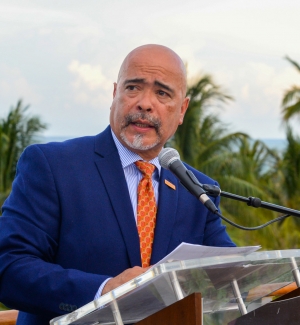This article was originally published on Latino Rebels here.
This week, the Supreme Court heard a case concerning Puerto Rico for the third time in three years. With so much interest on the island, you’d think the court would have addressed the century-old framework it created—one that provides legal cover for the current colonial relationship established in a series of cases known as the Insular Cases. In fact, the opposite is true. Each time the court has had an opportunity to either tangentially or squarely address the judicially constructed backing of imperialist expansion, racist conquest and foreign subjugation, it has abdicated its role.
The constitutional framework constructed by the court since the Spanish-American War not only allows for colonialism, it justifies it. Through language that refers to the new territorial acquisitions as “inhabited by alien races,” the constitutional separation based on race and national origin that the Court constructed means the island is “foreign in a domestic sense.” The Insular Cases, in essence, were yet another example of the legal fictions that courts construct to preserve structural inequality, racial superiority, and colonial objectives.
In 2016, the court heard two cases that seemingly were unrelated, Puerto Rico v. Sanchez Valle and Puerto Rico v. Franklin California Tax Free Trust et al. However, speak to Puerto Rico’s economic and political crisis. In Sanchez Valle, the court ratified, yet again, Puerto Rico’s colonial status, noting that the island has no separate source of sovereignty and can only exercise local autonomy to the extent that Congress allows it. In Franklin, the court confirmed in a jagged and nuanced opinion that Puerto Rico cannot pass its own domestic law to help restructure its debt, leaving it devoid of any bankruptcy protections. Both cases ushered in PROMESA, a federal law that allows for debt restructuring and imposed a federal fiscal control board.
The creation of that board by Congress is the subject of the cases the court is deciding now.
As disastrous and anti-democratic as the control board is, it is a congressional solution palatable to the federal courts. It is unlikely that the Supreme Court will change that now. The court has repeatedly affirmed Congress’ right to “dispose of” the territories as it sees fit, ironically entwining colonial aims with the principles of democracy. Rarely has the court questioned Congress’ disposition of the territories—instead in Sanchez Valle, the court affirmed the nearly all-encompassing plenary powers of Congress to decide how it wishes to govern the territories, including delegating its authority to imposed governors, federal monitors, and even control boards.
The court seemingly has no disposition to overturn these congressional decisions. Whether Congress followed procedural protocols in appointing members of the control board says nothing of the existence of the board’s legitimacy in the first place, nor will it likely vacate its prior decisions. Those decisions include: cutting pensions, closing public schools, reducing workers’ protections, approving tax hikes for citizens —while encouraging tax incentives for foreign businesses— and privatizing public infrastructure.
International human rights bodies have denounced the colonial status of Puerto Rico for decades, including the latest iteration in the form of the control board. The U.N. Special Committee on Decolonization noted “with concern” the imposition of the control board. The U.N. Special Rapporteur on extreme poverty expressed concern with the board’s economic vision, stating that “Puerto Rico not only has a fiscal deficit, it also has a political rights deficit, and the two are not easily disentangled.” The Inter-American Commission on Human Rights said last year austerity imposed by the board will only deepen the human rights crisis.
It is time for the court to listen to the international community. Justice Breyer appears to, at least. His dissent in Sanchez Valle relays his concern about the representations made by the United States that Puerto Rico had achieved the “full measure of self-governance,” and that perhaps those representations were in fact no longer true, to the extent they ever were. The human rights principle of progressive realization mandates that states move closer to, not further away from, the fulfillment of their human rights obligations. Thus the judiciary must consider international legal obligations in the interpretation of its own jurisprudence.
How to constitutionally appoint an anti-democratic board is fundamentally irrelevant, but how to eliminate the doctrine that created it, surely is. True democracy is what Puerto Rico showed the world this past summer in its uprising when it demanded an end to corruption, colonial rule and the control board. And that, along with colonialism, will never be resolved by a court.
***

